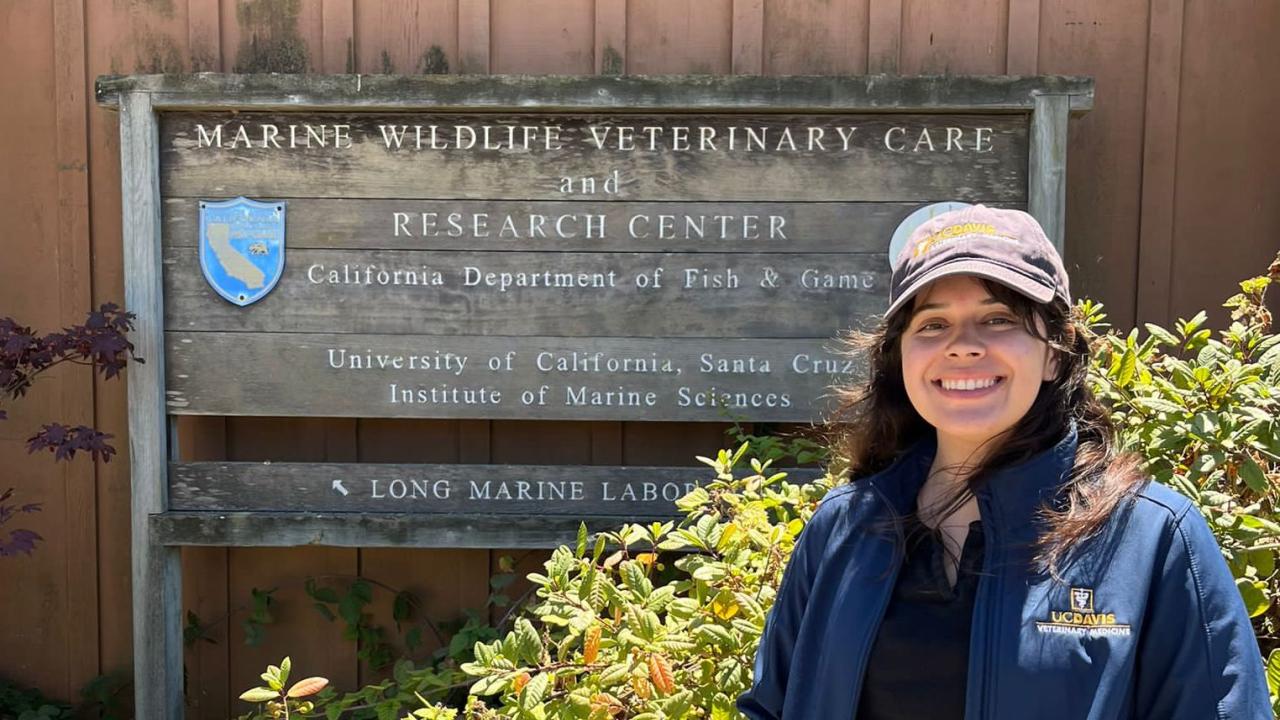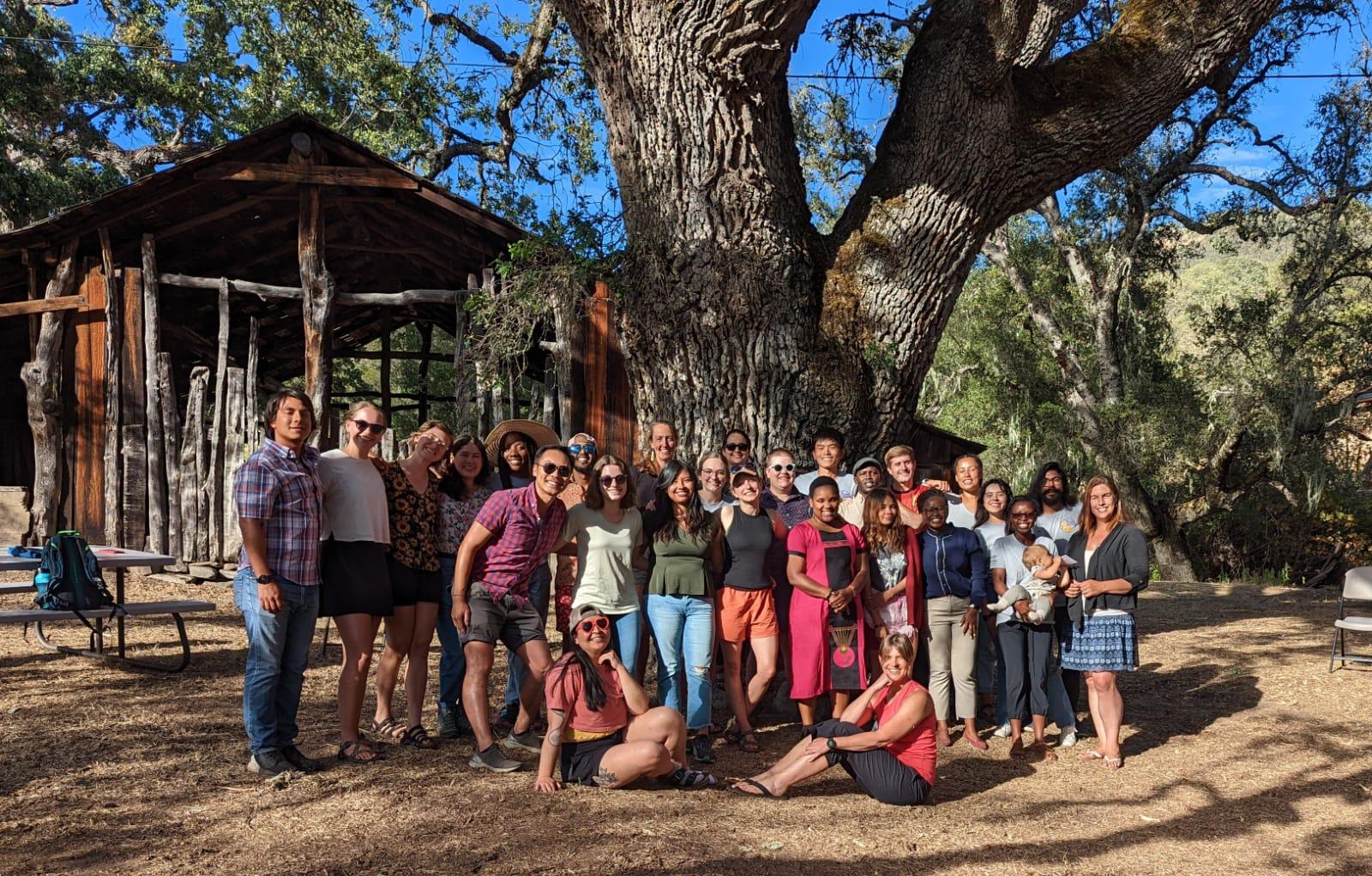
RxOH 2022 Alum: Kimberly Aguirre
Kimberly Aguirre
My name is Kimberly Aguirre. I’m originally from Calexico, a border-town in Southern California. I am set to start my first year of veterinary school this fall, and I plan to specialize in livestock medicine. My current interests are in public health, preventive veterinary medicine, disaster medicine/ response, and increasing veterinary care access in underserved communities. I'm not sure where I will end up post-graduation, but I hope to become a public health veterinarian and work in areas involving food production and safety, food-borne illness/ zoonotic disease control, epidemiology, outbreak investigation, and One Health.

I was first introduced to the concept of One Health in a course I took during my undergraduate education. Prior to this, I had a very limited perspective on the role of a veterinarian, in which I believed their work was meant to only directly impact the health of individual animals. Through this course I was introduced to the many contributions veterinarians make within the public health and One Health fields, from zoonoses surveillance to the development of vaccines to investigating epidemics caused by human-animal conflict. I was fascinated by all these concepts and found myself gravitating towards topics involving One Health, inspiring me to look for opportunities where I could both gain more knowledge on One Health and practice applying that knowledge in real-life situations. When I came across Rx One Health, I immediately thought that this experience would be the perfect way to dive into the world of One Health and see what areas overlapped with my own career interests. As a future veterinary professional, I felt that this course would provide me with a better understanding of One Health issues as they pertain to veterinary medicine, allowing me to contribute to disease control and prevention within diverse communities and human/ animal populations. I was also excited to have the opportunity to collaborate with professionals from various fields and backgrounds, so that I could practice my teamwork skills while learning from the different perspectives people brought.

During the Rx One Health course, I was met with many exciting opportunities that allowed me to explore my interests within One Health, as well as challenges that pushed me to step out of my comfort zone. One of the more difficult experiences that I encountered was having to work in a large team. I have always been a fan of team work, but I had no prior experience working with a group of 20+ professionals in order to reach a common goal. For example, one fun activity we were given involved figuring out a story/ scene with everyone only receiving a small piece of information to work with. It was challenging at first, since many people had their own ideas that they wanted to run with and our communication strategy was lacking to say the least. I felt flustered and timid since I usually do better in small group settings, and I worried that I wouldn’t be able to contribute to the group and thus hinder our progress in the activity. Eventually, we were able to organize ourselves and set rules for communicating to make sure everyone had the opportunity to speak and share their ideas. While we did spend a few days in the classroom, my favorite moments of the program came when we had the opportunity to learn in beautiful, outdoor settings. Growing up in a desert environment with high temperatures and lack of hiking areas, I had few opportunities to interact with diverse ecosystems and immerse myself in nature. As part of this course, I was fortunate enough to be able to visit places such as Clover Valley Ranch, Salinas Valley, and Hastings Natural Reservation, just to name a few, while also learning about the history of these areas and how these environments were relevant to One Health concepts. My favorite location that we visited was Moss landing, since I was able to see up close how wild animals can interact with humans and domestic animals, and how these interactions can impact the health of local human and animal populations. I also learned how factors that affect the natural environment (especially in negative ways, such as chemical pollutants and human-driven land changes) will resonate throughout an ecosystem and eventually impact the humans and animals residing there as well.

While reflecting on my time in the course, I realized how grateful I was for the opportunities and challenges I experienced since they allowed me to grow both personally and professionally. As a future veterinarian I was glad to walk away from the program with a better understanding of the importance of and difficulties that come with interdisciplinary collaboration and communication, since these are things I will continue to encounter throughout my training and career. This program also taught me the value of ethical community engagement, and how this is necessary in order to identify and address issues that impact different populations (both human and animal), especially those that are historically underserved or disadvantaged. Finally, my biggest takeaway from this course was that there are innumerable ways in which professionals from different backgrounds and areas of expertise can engage with and promote One Health. Going into Rx One Health, I assumed at the forefront of the field was mostly veterinarians and doctors, but working alongside my fellow participants showed me how useful and necessary their skill sets and knowledge could be for solving One Health issues. Having a diverse task force, from virologists to agriculturalists to community representatives, is what will allow the next generation of One Health professionals to tackle emerging and current health issues.

Overall, I plan to take the experiences and knowledge that I gained during this course with me throughout my academic and professional careers. My goal is to contribute to the current work being done in food safety, epidemiology, and disease surveillance, while also building relationships with underserved communities to promote better public health practices. As the fields of veterinary medicine and public health continue to adapt to address emerging zoonoses and agricultural issues, I believe that having a One Health background will allow me to contribute meaningfully to human, animal, and environmental health efforts.
